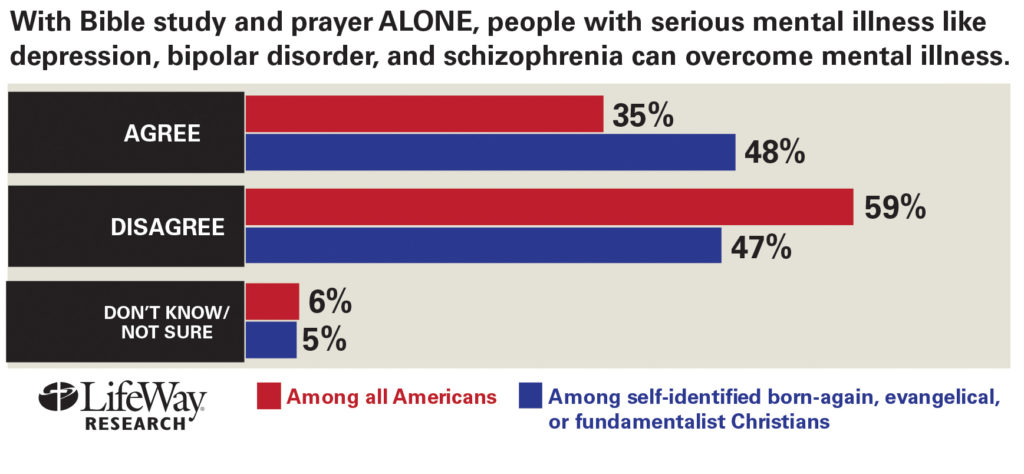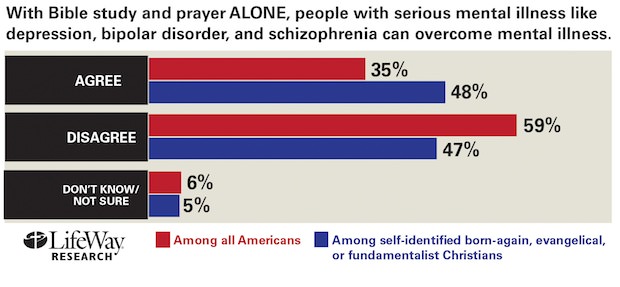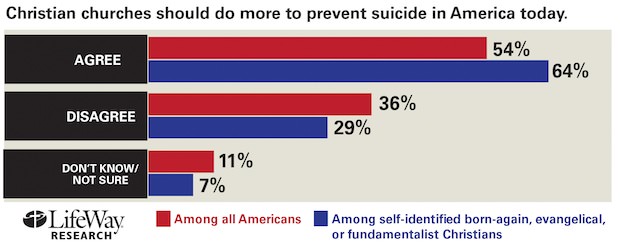
By Bob Smietana
A third of Americans – and nearly half of evangelical, fundamentalist, or born-again Christians – believe prayer and Bible study alone can overcome serious mental illness, according to a recent survey by Nashville-based Lifeway Research.
The survey also found most Americans (68 percent) would feel welcome in church if they were mentally ill.
Ed Stetzer, president of Lifeway Research, said Christians care about those affected by mental illness.
He’s glad churches are seen as a welcome place for those with depression, bipolar disorder, or schizophrenia.
But he worries some Christians see mental illness as a character flaw rather than a medical condition.
Christians will go to the doctor if they break their leg, he said. But some may try to pray away serious mental illness.
“They forget that the key part of mental illness is the word ‘illness,’” he said. “In a typical evangelical church, half the people believe mental illness can be solved by prayer and Bible study alone.”
Lifeway Research asked four questions about mental illness as part of a telephone survey of 1,001 Americans conducted Sept. 6-10, 2013.
Thirty-five percent agree with the statement, “With just Bible study and prayer, ALONE, people with serious mental illness like depression, bipolar disorder, and schizophrenia could overcome mental illness.”
Responses are split by both faith and age.
Fifty percent of those 18-29 years old say prayer and Bible study could overcome mental illness. That number falls to less than 30 percent for those 55-64.
Evangelical, fundamentalist, or born-again Christians (48 percent) agree prayer can overcome mental illness. Only 27 percent of other Americans agree.
Among other findings:
Just over half (51 percent) say someone close to them has experienced mental illness. That number drops to 37 percent for those over 65.
Fifty-four percent of Americans say churches should do more to prevent suicide. That number jumps to 64 percent among evangelical, fundamentalist or born-again Christians.
Americans who never attend church services are the least likely to agree that churches welcome those with mental illness. Those who attend weekly see churches as welcoming.
Tim Clinton, president of the Forest, Va.-based American Association of Christians Counselors, said spirituality can play a crucial role in treating mental illness.
He called it “soul care.”
Clinton hopes more churches will become open to talking about mental illness. That means taking a holistic approach that deals with spiritual, emotional and physical concerns.
That can involve counseling, medication, as well as prayer and Bible study.
“Churches need to be biblical communities of healing, “ he said.
DOWNLOAD THE FULL PRESENTATION









